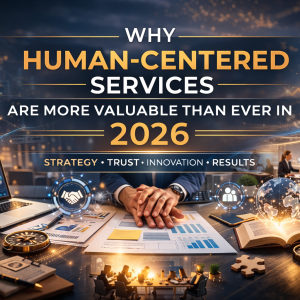🟡 Monday Spotlight – The Service Economy 2.0: Why Flexibility Is the New Currency
From career ladders to project portals—how the world of work is being redefined by services, not salaries.
The 21st-century labor landscape is shifting fast. Permanent roles and linear career paths are giving way to freelance gigs, on-demand services, and project-based contracts. Welcome to the Service Economy 2.0, where flexibility isn’t just a perk—it’s the new currency of productivity and success.
According to the World Economic Forum, the rise of the gig economy and flexible service platforms is fundamentally reshaping how businesses operate and how professionals define their careers. The COVID-19 pandemic accelerated this shift, but even beyond the crisis, the change is structural—not temporary.
🧠 What Is the Service Economy 2.0?
The first wave of the service economy focused on traditional sectors like hospitality, customer support, and retail. Service Economy 2.0, however, is built on digitization, decentralization, and demand-driven engagement. Instead of fixed payrolls, businesses are increasingly turning to:
- Freelancers
- Consultants
- Independent service providers
- Task-specific platforms
Whether it’s a UX designer, a virtual assistant, a financial analyst, or a copywriter—work today is about skills-on-call, not titles-on-resume.
📊 Why the Shift Toward Project-Based Work?
- Speed & Agility
Businesses can scale up or down quickly by contracting the right service provider, without long-term overhead.
- Expertise on Demand
Hiring for specific tasks allows access to deeply specialized professionals without needing full-time commitments.
- Global Reach
Platforms allow companies to tap into a global pool of vetted experts, breaking down borders and time zones.
- Lifestyle-Driven Workforce
Workers want flexibility, autonomy, and purpose-driven work. Project-based contracts enable them to control their schedules while still building meaningful careers.
🌍 Real-World Examples
- A small business outsources social media marketing for a campaign instead of hiring an agency.
- A startup hires a fractional CFO to manage finances until Series A.
- An HR manager brings in a remote learning consultant to set up onboarding programs.
The old model said: “Hire slow, retain long.”
The new model says: “Hire smart, deliver fast.”
🔎 Where Servicingpedia Fits In
At Servicingpedia, we’re not just documenting this shift—we’re empowering it.
Whether you're looking to offer your services or find the perfect provider, we’re building a trusted platform with:
- 🗂️ Industry-specific guides on project-based work
- 💼 Listings and tips for top service types
- 🤝 Community-driven support and best practices
- 🔄 Insights into evolving trends and technologies in service delivery
We help both service providers and service seekers navigate this new economy with confidence, clarity, and community.
🟡 Embrace Flexibility. Empower Productivity.
The rules of work are being rewritten. Are you adapting?
Visit Servicingpedia to explore the tools, trends, and talent driving the future of flexible services.
🔗 Discover more on Servicingpedia
#ServiceEconomy #FutureOfWork #FlexibleWorkforce #Servicingpedia #GigEconomy #FreelanceWork #ProjectBased #OnDemandServices #SmartStaffing #DigitalServices #WorkReimagined






